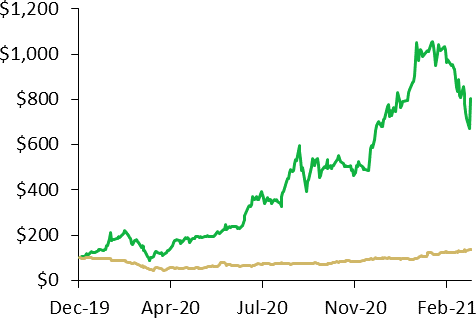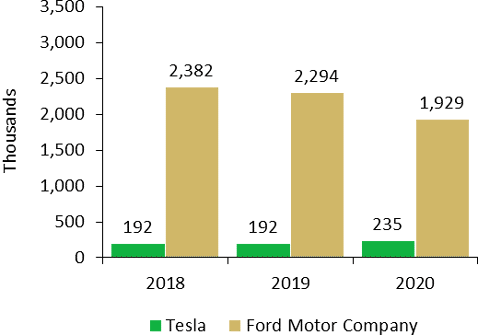In this edition...
- A Most Exceptional Recovery Guy Monson, CIO and Senior Partner Sarasin & Partners
- Staying the course Andrew Morris, Product Specialist Canada Life Asset Management
- Price and value: what you pay versus what you get John Husselbee, Head of the Liontrust Multi-Asset investment team Liontrust
- Why rebalancing client portfolios is good practice Georgina Yarwood, Investment Strategy Analyst Vanguard Europe
- Market Timing: is now the time to move your portfolio into cash? Hugo Thompson, Multi-Asset Investment Specialist HSBC Asset Management
- The investment journey: a balancing act Kirsty Wright, Head of Proposition – Pensions & Funds LV=
- Helping mining groups meet the challenge of sustainable development Sandra Crowl, Stewardship Manager Carmignac
- Introducing Multi-Asset Solutions in Goldman Sachs Asset Management Shoqat Bunglawala, Head of Multi-Asset Solutions for EMEA and Asia Pacific Goldman Sachs Asset Management
- What is the post-pandemic outlook for Asian shares? Richard Sennitt, Fund Manager, Asian Equities Schroders
- Retirement should be enjoyed, not endured John Stopford, Co-portfolio Manager, Diversified Income Fund Ninety One
- Is passive investing killing ESG? Jon Lycett, Business Development Manager RSMR
- Emerging from the winter of discontent Salman Ahmed, Global Head of Macro and Strategic Asset Allocation Fidelity International
- IG credit: bubble trouble, alpha opportunity, or both? Adam Darling, Co-manager Jupiter Corporate Bond
- The Unknown King-Makers of ESG Editorial team, Synaptic Software Limited
- How to drive more protection business to your website in 6 easy steps Editorial team, Synaptic Software Limited
- Innovation that protects: Webline journey updates Richard Tailby, Head of Sales Synaptic Software Limited
- Make your Central Investment Proposition (CIP) a pillar of your success Terry Lawson, Business Development Manager Synaptic Software Limited
- The ‘ex-ante’ compliance is icing on the financial planning cake Eric Armstrong, Client Director Synaptic Software Limited
Growing fears about rapidly inflating bubbles in certain parts of investment markets have led to renewed focus on one of the oldest – and most fundamentally misunderstood – relationships in finance, between price and value.

"When it comes to most publicly traded assets, operating without the safety net of a recommended retail price, there is a difference between what something is 'worth' based on its fundamentals and how much people are prepared to pay for it"
Warren Buffet's 'price is what you pay, value is what you get' is a favoured quote to illuminate this and we are also reminded of the Oscar Wilde character knowing 'the price of everything and the value of nothing'. The retort to this is the even better but less well-known, 'a sentimentalist…is a man who sees an absurd value in everything and doesn't know the market price of any single thing'.
When it comes to most publicly traded assets, operating without the safety net of a recommended retail price, there is a difference between what something is 'worth' based on its fundamentals and how much people are prepared to pay for it. This means it is possible to get bargains from time to time (think of investment trusts trading on a discount, for example) but this disconnect has also fuelled every bubble in history, from the 17th century's tulip mania through the late 1990s' technology bubble to the frenzied trading in assets such as Bitcoin and stocks like GameStop and Tesla in recent months.
Going right back to first investment principles, the value of an asset is determined by its fundamental properties. With equities, for example, this includes its assets and liabilities, earnings, market share, management team, and, for investors, its capacity to provide cashflows over time. There are a huge range of metrics to indicate underlying value, often combining these properties, with the most popular including price to earnings ratio, price to book and debt to equity.
Price, while encompassing those fundamental elements, is also heavily influenced by far shorter-term, sentiment-driven factors, from basic supply and demand (where current fads and fashions come into play in bidding up or pulling down prices) to market noise, whether macro, micro or simply the prevailing news headlines of the day.
Most investors understand this trade off and, for the most part, longer-term fundamental factors are reflected in valuations. But there are also times when the value/price spread becomes more than simply attributable to short-term noise and bubbles emerge, with Tesla providing a perfect case study of this.
Prices versus its value
Share price

Source: Liontrust, Morningstar, 31.12.19 to 10.03.21, 2018 to 2020
US car sales

If you look at Tesla's price to book ratio, it was already expensive in 2018 and 2019 at around 12 times but this ballooned last year to over 40, while rival car firm Ford, in comparison, has remained stable at around one times book value. Tesla fans may try to rationalise this with claims the company is at the vanguard of an electronic revolution in the car world, and they may be proved right. But if you just focus on the here and now, Tesla's 700%-plus share price appreciation during 2020 looks very hard to justify: the company sold just 235,000 cars in its home market (the US) last year (versus close to two million for Ford) while its market cap expanded from $75 billion to $668 billion.
For anyone wanting to invest at these multiples, they have to question what value they are getting for their money and, for shareholders, this will ultimately be determined by how far Tesla can keep rising. We have long harboured serious doubts about stretched valuations across several tech companies in the US and believe recent corrections could continue through this year and beyond.
Theoretically, keeping the above factors in mind should help investors from overpaying for assets, particularly in periods of volatility and overexuberance, but as any student of markets knows, fear and greed continue to dominate decision making and even the most experienced still try to time the market. In a recent paper, behavioural finance expert Oxford Risk claims that so-called emotional investing has hit a new peak in the current economic, fiscal and market environment; on average, these ill-timed decisions cost investors around 3% in lost returns a year over the long term and this figure is rising amid the current crisis.
Emotional responses to short-term market noise typically push people into buying high and selling low and they frequently pursue investments that are familiar – companies publicised in the media, for example, and those that have recently announced large gains. According to Oxford Risk, this is because, in times of stress, investors find comfort in names they hear about regularly that seem to offer the promise of short-term returns. In financial terms, as in many other parts of life, Covid-19 has left many people highly sensitive and with a shortened emotional time horizon, which increases and explains the appeal of investments that are little more than get-rich-quick gambles.
From our perspective as multi-asset managers, this question of price versus value is also a key part of fund selection and we have written in the past about potential issues if investors focus too much on cost, running the risk of overlooking more fundamental concerns such as their risk profile or long-term objectives.
Of course, the amount you pay for something is a major consideration in any transaction but if investors see price as the only factor that matters when selecting financial products, they will largely buy the cheapest options available. This takes no account of desired outcomes and fails to consider the possibility that paying more might produce a better end result; what happened to the idea of higher charges for a quality service?
We add a third element to the price/value question in the shape of value for money, which is the central concern whether selecting funds, buying Bitcoin or day trading Tesla and GameStop shares. Our role in providing managed solutions – as a key part of meeting suitability requirements – is seeking investments that offer value for money, whether active or passive, and then packaging these in the best value funds and portfolios for our clients. That may seem a simple goal but can often get lost, particularly if people forget the difference between what they pay and what they get.
For a comprehensive list of common financial words and terms, see our glossary at: liontrust.co.uk/benefits-of-investing/guide-financial-words-terms
Key Risks & Disclaimer:
Liontrust Fund Partners LLP (2 Savoy Court, London WC2R 0EZ), authorised and regulated in the UK by the Financial Conduct Authority (FRN 518165) to undertake regulated investment business. Please remember that past performance is not a guide to future performance and the value of an investment, and any income generated from them can fall as well as rise and is not guaranteed, therefore you may not get back the amount originally invested and potentially risk total loss of capital. Investments should always be considered as long term. This document should not be construed as advice for investment in any product or security mentioned, an offer to buy or sell units/shares of Funds mentioned, or a solicitation to purchase securities in any company or investment product. Examples of stocks are provided for general information only to demonstrate our investment philosophy. It contains information and analysis that is believed to be accurate at the time of publication but is subject to change without notice. Whilst care has been taken in compiling the content of this document, no representation or warranty, express or implied, is made by Liontrust as to its accuracy or completeness, including for external sources (which may have been used) which have not been verified. It should not be copied, faxed, reproduced, divulged or distributed, in whole or in part, without the express written consent of Liontrust. 21/331
Sign up for updates
Keep up to speed with everything you need to know each quarter, by email or post.


